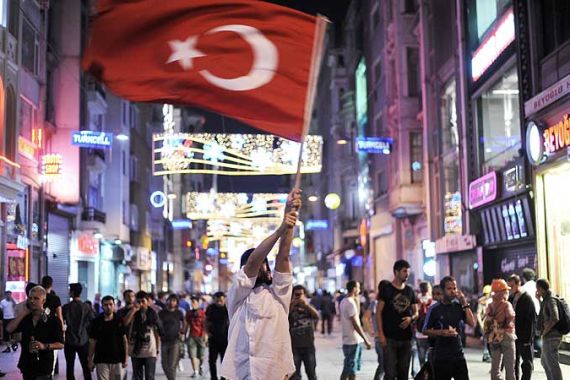Fifth death in Turkish anti-government demos
Local media reports death of a university student attacked while he was fleeing from tear gas on a June 2 protest.

A university student who was injured during anti-government protests in Turkey last month has died from his injuries, bringing the death toll in the unrest to five, local media reported.
19-year-old Ali Ismail Korkmaz, who joined the demonstrations on June 2 in the central Anatolian city of Eskisehir, suffered a brain hemorrhage when unidentified assailants attacked him while he was fleeing from tear gas, local media said on Wednesday.
He reportedly died at a university hospital in Eskisehir where he had been treated.
Turkey entered into a turmoil in late May after a sit-in protest against an urban development project in the heart of Istanbul, the largest province and financial capital of the country, transformed into country-wide anti-government demonstrations.
Four people have been killed and nearly 7,500 people injured during the uprising, Turkish Medical Association said before Korkmaz’s death.
A Turkish court ruled to release a suspect police officer who is charged to kill another protester, Ethem Sarisuluk, pending trial in late June, and the suspect was later granted police protection.
Demos continue
Still Protests are organised on a routine basis but mostly at a smaller scale.
Turkish riot police fired tear gas and water cannon to block demonstrators from entering Gezi Park in Istanbul on Monday, the birthplace of unrest that engulfed the country last month.
The police move came after protesters started to gather in Taksim Square to enter Gezi Park which was reopened to public by Turkish authorities earlier in the day but closed again shortly.
The crisis began when a sit-in to save Gezi’s 600 trees from being razed in a redevelopment project prompted a brutal police response on May 31, escalating into countrywide demonstrations against Prime Minister Recep Tayyip Erdogan, seen as increasingly authoritarian and anti-secular by some parts of the society.
Erdogan’s ruling Justice and Development Party managed to claim almost 50 percent of the votes in 2011 general elections.